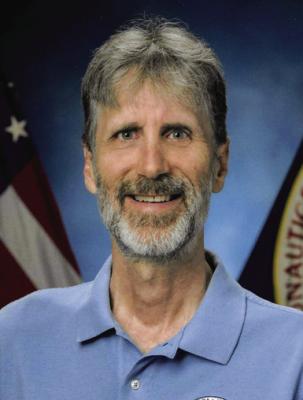Po-Hi Hall of Fame
Roger Scott Askew – Class of 1980
Roger Scott Askew will be inducted into the Po-Hi Hall of Fame during the Po-Hi Hall of Fame Banquet on Thursday, Sept. 22 at 7 p.m. at the Carolyn Renfro Event Center, 445 Fairview in Ponca City. Roger Scott Askew was born on November 16, 1961 in Oklahoma City, OK. Scott’s parents are Bob and Faye Askew and Patsy Askew Wisdom. His family moved to Ponca City when he was seven.
Scott attended Woodlands Elementary, East Junior High School, and Ponca City High School, graduating in 1980. At Po-Hi Scott was less academically and more practically inclined. He attended Vo-Tech as a senior where he was in the Radio and Television Repair class. This led to his first technical job as a TV technician at Dave’s TV and Repair. Through David Bush’s patient mentorship, Scott learned the basic principles of testing and troubleshooting that have served him throughout his career.
Scott attended Oklahoma State University for one year
(See HALL, Page 2A) then transferred to the University of Oklahoma where he received a Bachelor of Science Electrical Engineering (BSEE) in 1986. He received a Master of Science Electrical Engineering (MSEE) from Virginia Polytechnic Institute (Virginia Tech, VT) in 1989 through a NASA academic fellowship program.
Scott has enjoyed a career in robotics as an electrical engineer with the NASA Johnson Space Center for 40 years. Mr. Askew currently serves as the Robotics Technical Discipline Lead within his branch of 30 civil servants. He has several patents and has won numerous awards while at NASA. From 2004-2006 he was selected as a NASA Administrator’s Fellow, where he contributed to academic engineering program development at tribal colleges.
It was at OSU where Scott decided he wanted to design and build the systems they were focused on operating and repairing. After transferring to OU, Scott learned about the cooperative education program, through which a student could spend alternating terms working in private industry and attending university. He found that working for NASA through this program was a possibility. Scott grew up hearing many tales about Don Puddy’s NASA career as his neighbors were Don’s parents. While completing his BSEE and co-oping at JSC, Scott was introduced to the field of robotics, which combined his interest in electronics with the controlled motion of mechanisms that perform complex tasks. After graduating from OU in 1986, he moved to Houston full-time and began working in a lab with robots that were demonstrating space assembly and docking. Scott quickly recognized that an advanced degree would allow him to contribute more to NASA robotics since there was little expertise within his organization in this emerging field. He received an academic fellowship to attend Virginia Tech. After he returned to NASA, he eagerly joined the newly formed Robotics Systems Technology branch in 1990.
In this role Scott had the privilege of working for over three decades with some of the best engineers in the world on innovative projects, including the Robonaut series humanoid robots which were NASA’s first purpose built (from the ground up) robots designed to assist astronauts during space missions. The most critical area that Robonaut was intended to address was assistance during space walks (Extravehicular Activity, EVA), which represents an astronaut’s most challenging and dangerous work.
Scott served as the Avionics (electronics) Lead on the first Robonaut, and the Hand Avionics Lead on Robonaut 2, which was developed in partnership with General Motors to advance factory assembly technology. Though the technology demonstration units developed to date have not performed an EVA in space, the Robonaut 2 system became the first humanoid in space when it was flown to the International Space Station (ISS) on the Space Shuttle Discovery in 2012. Robonaut performed indoor tasks controlled by both astronauts onboard and remotely from the ground. Scott also worked on The Simplified Aid For EVA Rescue (SAFER), a small jetpack which attaches to an astronaut’s space suit. It serves as an emergency rescue device should an astronaut become untethered from a spacecraft during a space-walk. Just as the Robonaut 2 was being flown to the ISS a new SAFER was required for the ISS in the post Space Shuttle era. Scott was the Avionics lead for this ISS SAFER, and for three years he developed and tested the space flight hardware that is currently used in every EVA by US astronauts.
Scott met his wife Cindy Bandemer in 1998, and they have been married since 2000. They have a son, Silas.
As a proud Choctaw, Scott found working with Tribal Colleges in their development of engineering programs at least as rewarding as any of the technical projects he has worked on. To this day one of his greatest joys is mentoring young engineers and students in robotics and engineering.
Tickets are $50 per person or a reserved table for eight is $500 (eight tickets). Tickets are now on sale and may be purchased at the PCPS Central Administration Building, 613 East Grand. Inquiries may be made at 580-767-8000.
The individuals selected to be inducted into the Ponca City High School Alumni Hall of Fame’s sixth annual induction ceremony include Walter Harris Jr. (Class of 1941), Don Schieber (Class of 1964), Lynn Moore (Class of 1966), John Stanley III (Class of 1979), Scott Askew (Class of 1980) and Elizabeth Poyner (Class of 1980).
Ticket sales proceeds will go towards Ponca City High School Hall of Fame Scholarships.

